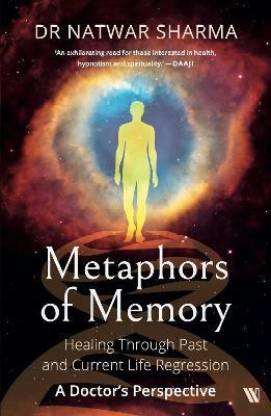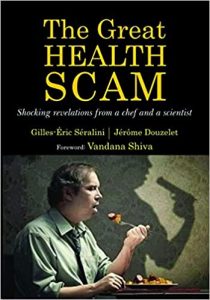At some level we are all aware that our past shapes us in subtle but powerful ways. Sometimes though, potent triggers from our current lives or from past lifetimes may set off a chain of events that lead to chronic health conditions. Conventional therapy may or may not be able to control or eliminate the symptoms. It is possible that the condition is traced back not only to some events, but our thoughts and our processing of these events and feelings from the past. “If our thoughts can make us fall sick, they can also help us heal,” writes Dr. Natwar Sharma in Metaphors of Memory: Healing Through past and Current Life Regression (Westland Books).
The book takes up the ambitious aim of bridging the gap between conventional medicine and alternative healing. It is an exploration into the world of regression therapy, a known and researched body of knowledge where hypnotism is used to access memories of the past in order to address a current problem or situation. As an associate professor in paediatrics and paediatric critical care in Saveetha Medical College Chennai, India, Dr.Natwar Sharma is grounded in the realm of conventional medicine. However, his mystic and spiritual bent of mind led him to delve deep into the potential of regression therapy. As a result, he was able to view healing in a more holistic manner. This led to a journey wherein he has successfully helped several patients overcome a host of medical conditions by using past life regression therapy.

For a reader willing to be open and explore alternative healing, Metaphors of Memory is a wonderful introduction. It talks about how current and past life regression can lead to healing through integration of emotions after ‘catharsis’ which is experienced in the regression process. It also delves into the mechanics of how the past can have overarching consequences on the human mind and soul, often manifesting across lifetimes. A strong overpowering event, emotion or thought in the past can be triggered by something in the present. This sets-off a health condition. However, on experiencing regression, there is catharsis and healing. Moreover, new neural pathways are formed in the brain as a result of regression, and gradually one sees a positive change.
Readers who are aware of the concept and want to delve in for further knowledge will also find the book very useful. The examples and case studies in the book provide ample information. At each point, the case studies coupled with Dr. Sharma’s comments and analysis paint a comprehensive and detailed picture of how past life regression works, and why it does so.
One can also glean broader insights as well on reading this book. There are many lessons and thoughts that emerge. These provide pointers to broader ideas. For example, Dr. Sharma points out how pervasive the impact of parenting conditioning as well as mass conditioning can be. Many problems have a root in parental conditioning. This has implications on parenting and how crucial the right kind of parenting could be for producing better human beings who are internally integrated. He also mentions how wars and world events have left a deep impact on people across ages and continues to do so. This points out to the need to address ‘collective trauma’ today.
In all, the book is highly uplifting and positive. The simple language and conversational tone makes this book accessible to anyone who has interest in the subject of past life regression as well as new healing paradigms. Metaphors of Memory is a wonderful study of the power of past life regression and how one can use it as a potent force for holistic healing.




